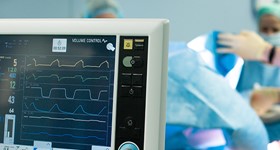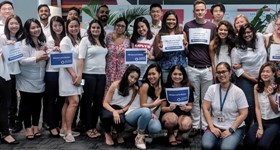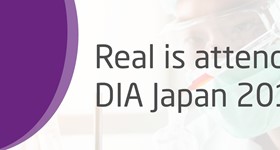Japan’s tsunami of aging: Will tech ease the burden?

Japan has long been titled ‘World Most Aged Society’ with over 67,000 centenarians – people aged 100 years and older. This thus suggests that one of Japan’s greatest responsibility is their ability to sustain its healthcare sector with the best support.
As an avid innovator of technology, Japan is in the forefront of a digital future and is using it to serve as a potential remedy to their aged-old problem. Japan has been capitalising on three areas – medical devices, pharmacovigilance, robotics and Artificial Intelligence (AI) – all of which they are currently dominating in to help support the aged.
Medical devices
Japan reigns as the world’s second-biggest medical devices market. Supporting this title is its ability to attract cash-rich corporations to invest in its medtech. As a result, of the top 20 largest life sciences companies, over three-quarters are making moves to break into the medical devices sector. However, the shortage of talent within medtech is crippling these companies from doing so. Hence, to overcome the challenge on talent, programmes were designed to help aspiring medtech specialists be equipped with the right skills.
Japan Biodesign, for example, is a medtech fellowship programme that helps aspiring innovators understand, operate and commercialise new medical technologies. Part of the Stanford Biodesign global network—which helped launch similar programs in Singapore, India, and Ireland—the programme now has teams at three major universities in Japan, with plans to expand its footprint within Japan later this year.
Pharmacovigilance
Japan dominates the Asia Pacific pharmacovigilance market due to its robust adverse drug reaction reporting system and healthcare infrastructure. This is particularly crucial for an aging society like Japan as the risk of adverse drug reaction is significantly higher in aged populations. Hence, there is a dire need for adverse drug reaction monitoring and reporting.
To prevent an escalation of the problem, pharmaceutical companies in Japan have increasingly focused on development of personalised and precision medicines which can cater to specific needs of patients. Pharmaceutical companies overseas are also expanding their footprint in Japan to reap development opportunities and share its expertise. WIRD-Copernicus Group recently opened its Tokyo office to bolster its ability to support areas of drug and diagnostic development for oncology.
Robotics and AI
Science fiction frequently explores the learning capabilities of robots in living within human society. This has become a reality in Japan. Being a world leader in the development of robotics and AI, Japan is now using this to their advantage to support its elderly population.
“Carebots” and other robotic helpers are also being developed, not only for aging patients but for caregivers too. Studies show that as many as 70% of health care workers in Japan suffer from back problems because they often lift or support patients. To tackle this, electronic hardware companies such as Cyberdene and even Panasonic have innovated a number of products. This includes electric-boosted mobility aids and exoskeletons, which aim to ease the physical strain from patients and caregivers who need to handle patients.
“Carebots” and other machine learning technologies will also tackle the talent shortage within nursing homes, medical institutions and hospitals which can help to manage the growing demand for health care services.
While Japan’s medical devices, pharmacovigilance and robotics and AI sectors continue to grow, it is pertinent to note that innovation requires a long term commitment.
What still remains is a shortage in tech talent within Japan, and a potential lax in effort that aims to tackle its chronic aging population can lead to some of the following implications:
What are some of these implications?
-
Overcrowding of nursing homes: Japan’s vast majority of elderly are living in nursing homes and this may incur a shortage in supply of manpower as well as vacancies available within the homes
- Acute shortages of health workers
A potential issue of rising cost from shortage of talent
-
A rising burden of disease from age-related illnesses like dementia and osteoporosis
-
Japan will lose one-third of its current population by 2100
-
Medical care will rise 1.7-fold from ¥39.2 trillion to ¥68.5 trillion
-
Given shortage of supply and high demand, it will lead to higher-priced pharmaceuticals such as cancer treatment drugs as well as advanced medical care
Thus, as the population ages faster than the ability for the health care industry to adapt to, there is a strong need to take advantage of their expertise within innovation to ease this burden of an aging population.
What is crucial now is the need to create awareness particularly among its super-aged population who are unaware of these new technologies. While Japan’s elderly are being told to get looked after by robots in nursing homes and hospitals, adapting to new ways of services often takes time. Organisations are also using this as a chance to cultivate a greater understanding of the business opportunities within health care, medical equipment, and related services.
If you’d like to know more information on how organisations within the tech industry are assisting with healthcare needs or how the healthcare industry is progressing, please connect with me. You may also drop us an email at contactjapan@realstaffing.com if you’re looking for a career within healthcare or technology. Do also visit our webpage for more industry-related information at www.realstaffing.com.




